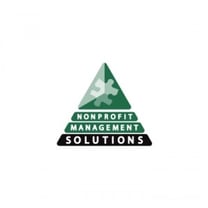Published on
Lifelong Learning for Nonprofit Professionals

Caprice Baca always knew that money can’t buy love. Two years ago, she also realized money does not buy job satisfaction.
Baca, 31, was employed in the San Diego automotive industry as a business development manager after receiving training in finance. “The work was all push, push, push,” she said.
In her next position she was as an underwriter, examining and approving car loans. Despite the high salaries, Baca recalls, “I was unhappy.”
Fast forward to her present position, managing contracts for community agency youth programs here at the San Diego Workforce Partnership, a nonprofit organization that funds job training programs.
“I can do a lot more here than I ever thought I could to help other people,” she said.
Baca enrolled in a budgeting workshop through Nonprofit Management Solutions (NMS), a San Diego-based organization that provides professional development courses. “I appreciate that my employer allowed me to take a workshop that benefits not only me, but also our organization,” Baca comments about the $90 half-day session.
Her career path is not uncommon to young professionals in this challenging economy. According to the University of San Diego’s latest State of Nonprofits Quarterly Index, “nonprofit job postings” are up nine percent, while “demand for services” from nonprofit organizations increased six percent this past year.
Lenore Lowe, NMS executive director, agrees that the nonprofit sector provides numerous employment opportunities. The majority of NMS attendees are women in entry and midlevel positions primarily in health and human services. Lowe points out that NMS training is an effective way to address unemployment. “As people move up in their organizations, they open up spaces for new employees to get hired.”
Lowe observes, “Young professionals are rising in the nonprofit sector, not in the way of my generation – we came up through the ranks with field experience in direct service. Now, they go through learning portals, like our professional certificates or even university graduate programs. They can climb the ladder differently.”
Dean Dauphinais, 34, program director at Interfaith Community Services, provides transitional housing for homeless veterans. He completed the NMS Nonprofit Management Certificate last year.

As a Marine Corps veteran, he notes, “I want to serve, and this position uses my experiences and skills. I love going to work every day. These veterans have given so much, and now, they’re suffering mentally, spiritually, physically. We can work to make their lives better.”
The certificate program provided insight into all aspects of the nonprofit sector, from facilities to fundraising. It offers “a perspective you don’t always get when you’re just doing your job,” according to Dauphinais. “When I can see the big picture, I can better see my role.”
Sarah Thompson, 31, credits the NMS Management Certificate with preparing her for her graduate studies at the University of San Diego. Her position at the San Diego Workforce Partnership focuses on community relations. “As a certificate for working professionals, the courses are not designed to be more work.” She added that the required projects, such as volunteer orientations and board manuals, allowed students to apply their learning to their “day jobs” right away.
The certificate program also created “a learning network” for Thompson–a group of other nonprofit employees who now meet for dinner—which will benefit her ongoing education.
Lowe enjoys the testimonials from Dauphinais and Thompson, adding that “my generation didn’t have the opportunity to stand on the world stage. The passion to do the work is not different with this younger generation. New tools, like social media and innovative philanthropy, are different–which makes lifelong learning so critical.”
Author Perspective: Business



